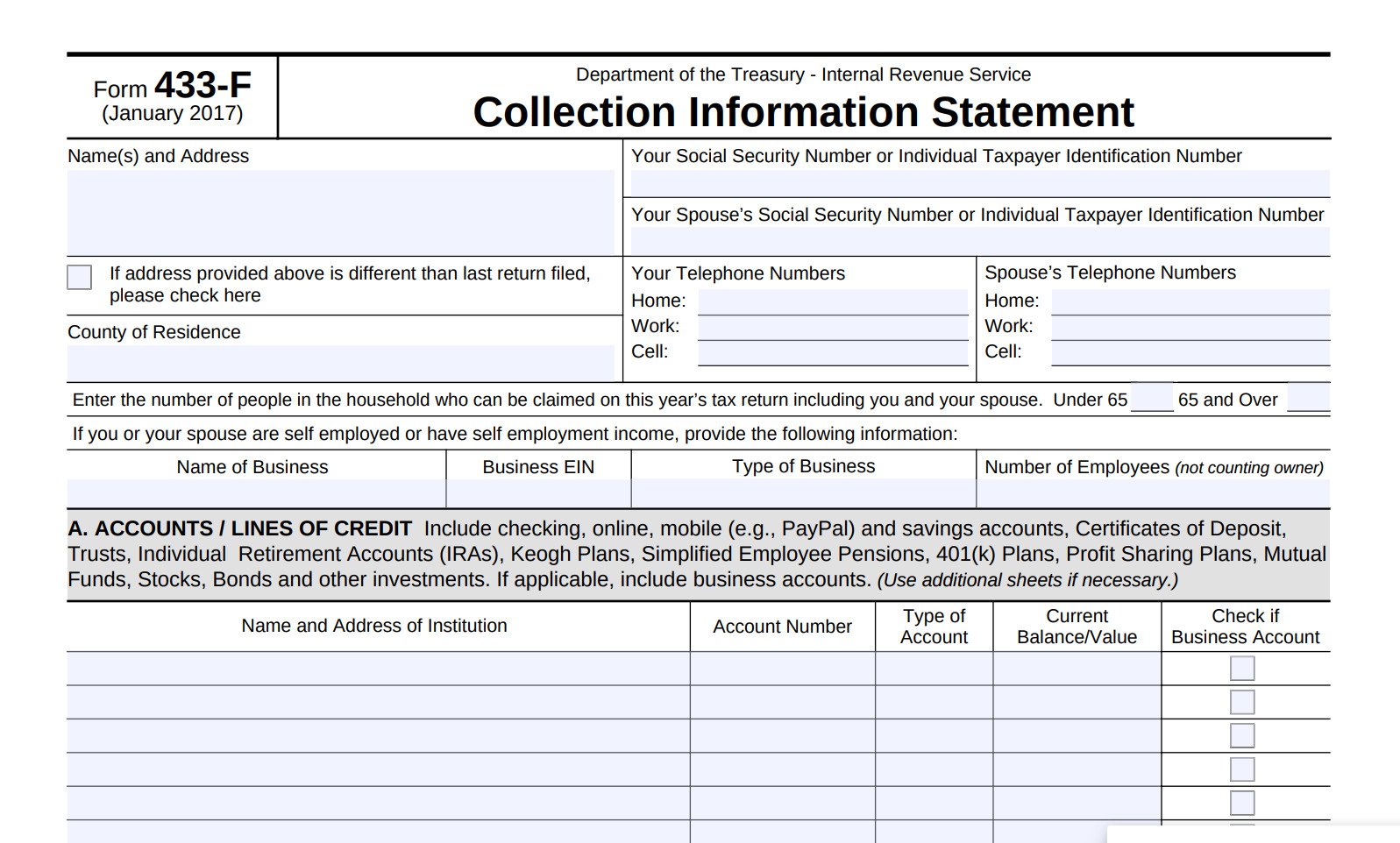Where your collections case is handled depends on the balance and tax type. The IRS collections process can be daunting for some, but here we go over the basics of IRS Collections and how it works.
See our video explanation of the IRS Collections process below or keep reading for the written information.
Individual or Automated: Depends on the Balance
Where your collections case is handled depends on the balance and tax type.
Regular Income Tax:
Balances under $100,00 = Assigned to IRS Automated Collections System
Balances over $100,000 = Assigned to IRS Revenue Officer, most of the time
Payroll Tax:
Payroll balances = Often assigned to a Revenue Officer even for a lower balance
IRS Collections: Balances under $100,000
Cases under $100,000 are going to be in the IRS ACS system. This a system mostly run by computers but staffed with real people. IRS ACS can issue garnishments and levies to collect the tax debt. They also issue liens to secure the IRS’ financial interest.
Call ACS immediately upon starting your case if your debt is in collections. Some tax relief companies do not actually call IRS ACS on your case, they just prepare and mail paperwork. When called they almost always give you a hold on collections and a call backdate. Keep sending in what is needed, and you should not get levied or garnished again.
IRS Collections: Balances over $100,000
Cases with balances over $100,000 are usually assigned to a Revenue Officer. There are some simpler cases that still may stay in the ACS system. The Revenue Officer is an individual agent at a local office directly assigned to your case. They may come to your home or place of business to make contact.
Revenue Officers, like ACS, can issue garnishments and levies to collect the tax debt. They also issue liens to secure the IRS’ financial interest.
You or your representative should contact the agent immediately. They will give you time to respond with documentation. If you or your representative keeps responding and providing information, then the case should go smoothly.
IRS Collections: Payroll tax debt
IRS Revenue Officers may get assigned here for a less than $100,000 balance, particularly when there are unfiled tax returns. Why? The IRS only has a few years to assess someone personally for the debt. Payroll taxes do not “die with the corporation/LLC” – they get assigned personally.
Garnishments, Levies, and Liens
Garnishments are sent to employers and/or Social Security. They take a portion of your funds until you set up another arrangement with the IRS.
Levies are a complete taking of whatever is there up to the tax balance. Bank accounts, merchant accounts, accounts receivable. The IRS comes in and takes what they can. Self-employed people will sometimes see all their income taken away.
Liens are basically the IRS proclaiming their interest in your property. They also file a credit report lien, so any potential lenders or anyone looking at your credit report is aware of the debt. The IRS almost never takes personal residences, contrary to what some tax relief ads may make you think.
You can stop the IRS from enforcing collection
Take action yourself or hire someone to help you. You can see our comprehensive tax help guide.
Not sure on your best tax resolution?
You can have us help you by calling us at (888) 515-4829 or visiting our Contact Page. We can let you know if a settlement is a good possibility or not. There’s no obligation. The consultation is free and you will leave with a better understanding of your options.
Summary

Article Name
IRS Collections: What You Should Know About Back Taxes
DescriptionWhere your collections case is handled depends on the balance and tax type. Cases under $100,000 are going to be in the IRS ACS system, while cases with balances over $100,000 are usually assigned to a Revenue Officer.
Author
Robert Kayvon, Esq.
Publisher Name
Tax Resolution Professionals
Publisher Logo


I don’t think the title of your article matches the content lol. Just kidding, mainly because I had some doubts after reading the article. https://www.binance.com/pt-PT/join?ref=DB40ITMB
I am really inspired with your writing talents as well as with the layout on your weblog. Is that this a paid theme or did you customize it your self? Anyway keep up the nice quality writing, it is rare to see a great weblog like this one these days!
Your article helped me a lot, is there any more related content? Thanks!
Your point of view caught my eye and was very interesting. Thanks. I have a question for you. https://www.binance.com/zh-TC/register?ref=VDVEQ78S